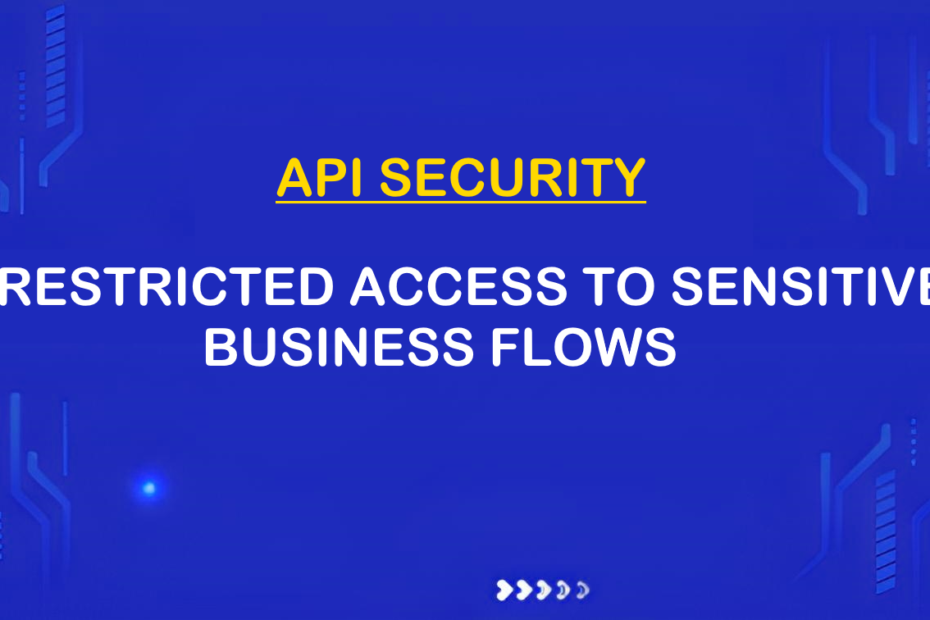Introduction:
API6:2023 is a crucial standard that emphasizes the unrestricted access to sensitive business flows while maintaining robust security measures. To ensure the compliance and integrity of APIs, rigorous testing and assessment are necessary. In this blog, we will explore how to test, perform, and potentially exploit APIs adhering to the API6:2023 standard using the Postman tool and Burp Suite. By understanding the vulnerabilities and risks associated with unrestricted access, developers and security professionals can strengthen the security of their APIs.

Testing API6:2023 Compliance:
Once the environment is set up, we can proceed with testing the API6:2023 compliance of the target API using Postman and Burp Suite. Follow these steps:
- Identify the API Endpoints: Determine the API endpoints that grant access to sensitive business flows, such as customer data or order management. Refer to the API documentation or collaborate with the development team to identify these endpoints.
- Send Requests with Postman: Use Postman to send requests to the identified API endpoints. Test various scenarios, including legitimate requests and potential edge cases. Verify the response codes, headers, and payload data. This helps ensure that the API behaves as expected and adheres to the API6:2023 standard.
- Intercept Requests with Burp Suite: Configure Burp Suite to intercept the requests sent from Postman. This allows us to analyze and modify the requests before they reach the server. Intercepting requests provides an opportunity to identify vulnerabilities and potential security flaws.
- Analyze and Manipulate Requests: With intercepted requests in Burp Suite, analyze the request structure, headers, parameters, and payloads. Look for any potential security vulnerabilities, such as lack of input validation, inadequate access controls, or exposure of sensitive information. Modify the requests to simulate various attack scenarios.
- Perform Security Testing: Utilize the diverse range of security testing capabilities provided by Burp Suite to evaluate the API’s security posture. Conduct vulnerability scans, parameter fuzzing, and brute-force attacks to identify weaknesses. Pay particular attention to the unrestricted access to sensitive business flows and potential data leakage points.
Exploiting Vulnerabilities (Ethically):
The purpose of exploiting vulnerabilities is to demonstrate their existence and potential impact to drive necessary remediation efforts. Ethical exploitation ensures that no harm is caused to the target system. Here’s an example scenario involving the API6:2023 standard:
Suppose the API endpoint “api.example.com/customer/{id}” grants access to customer information. Through testing and analysis, you discover that this endpoint lacks proper access controls, allowing unrestricted access to customer data.
To exploit this vulnerability ethically, you could use Burp Suite to modify the request parameters and attempt to access customer data belonging to other users. By providing different “id” values, you can verify if the API returns data that should not be accessible to the requesting user.
Remember, the goal of ethical exploitation is to highlight the vulnerability, not to cause harm or misuse the information obtained.
Conclusion:
Testing, performing, and potentially exploiting APIs adhering to the API6:2023 standard are essential steps in ensuring the security and compliance of sensitive business flows. By utilizing tools like Postman and Burp Suite, security professionals and developers can identify vulnerabilities, assess risks, and take necessary measures to strengthen the security posture of their APIs.
Citations:
https://salt.security/blog/api6-2023-unrestricted-access-to-sensitive-business-flows
For further clarifications or support, please write to contact@paradigmitcyber.com

